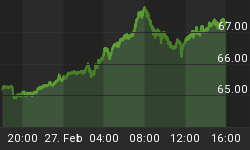Some 44 million people in the United States now owe more than $1.5 trillion in student loans, and not only do women carry the lion’s share of this burden, but they’ll also have the toughest time paying it back.
Such is the state of America’s higher education situation, according to a recent report by an education advocacy group whose statistics show that women hold almost two-thirds of the massive student loan debt.
A report by the American Association of University Women said that while 56 percent of today's college students are women, the downside is that they have $890 billion in student loan debt.
Women will take longer than men to repay their student loans as they earn 27 percent less than their male counterparts outside of school, according to the report. That also means that they are paying more in interest over time. Even worse, women are more likely than men to have family responsibilities to balance along with their education.
The average woman left her undergraduate education owing $21,619, compared with $18,880 for men. That's a difference of more than $2,700. Three years after graduating, women have paid off less than a third of their debt, while men have cleared some 40 percent of what they owe.
“On average across degree levels women in college took on initial student loan balances that were about 14 percent greater than men’s in 2015–16. Upon completion of a bachelor’s degree, women’s average accrued student debt is about $2,700 greater than men’s, and black women take on more student debt on average than do members of any other group,” the report said.
Outstanding student debt currently exceeds auto loan debt (at $1.1 trillion) and credit card debt (at $977 billion), according to the Federal Reserve.
While borrowing has declined since its peak before the 2008 recession, the trend is once again turning around, with the last couple of years witnessing graduates taking on bigger debt loads, more frequently. Related: S&P 500 Sentiment Remains Bullish
An estimated seven out of 10 students take out loans to get their degree and end up owing an average of $30,000 each. Nearly 20 percent owe more than $100,000. Recent data says that 11 percent of borrowers 90 days or more delinquent. All of this comes as the cost of higher education has risen 150 percent over the past four decades, but household incomes haven’t kept pace, having risen only 20 percent in that same time period.
Earlier this year, Federal Reserve Chairman Jerome Powell said that increase of student loan debt could slow down economic growth over time. Powell said educational debt swelled to nearly $1.38 trillion at the end of 2017. It’s gone too far.
“You do stand to see longer-term negative effects on people who can’t pay off their student loans,” Powell said. “It hurts their credit rating, it impacts the entire half of their economic life.”
According to a report published by the Levy Economics Institute of Bard College, wiping away the $1.4 trillion in outstanding loan debt for the 44 million Americans who carry it could boost GDP by between $86 billion and $108 billion per year, on average, for the 10 years following the debt cancellation. It would also lower the average unemployment rate by 0.22 to 0.36 percentage points over 10 years and could add between 1.2 million and 1.5 million jobs per year.
It would be dream come true not just for former students, but for all Americans, enabling them to realize bigger income to spend on houses, cars and other goods fueling job growth.
“That is a dollar for dollar bump up in their net worth,” said Stephanie Kelton, a professor of economics and public policy at Stony Brook University and one of the authors of the report.
The paper comes as lawmakers are considering changes to the student loan program that could decrease government subsidies to borrowers.
Related: Emerging Currencies Struggle To Gain Footing
Since Trump took office, the nation's student debt burden has soared by $110 billion, to an unprecedented and dangerous $1.41 trillion, while the number of student debtors has continued to grow to 45 million Americans, up 2 million.
The US is not alone in this higher education mess. In United Kingdom, a parliamentary committee recently said that universities were ripping off students and giving taxpayers poor value for money. The House of Lords economic affairs committee found that student loans would top £1 trillion over the next 25 years thanks to a “deeply unfair" system of fees and loans.
The cross-party committee said the student loan system appeared to have been used for a "fiscal illusion" to make the deficit look smaller.
By Damir Kaletovic for Safehaven.com
More Top Reads From Safehaven.com:
















